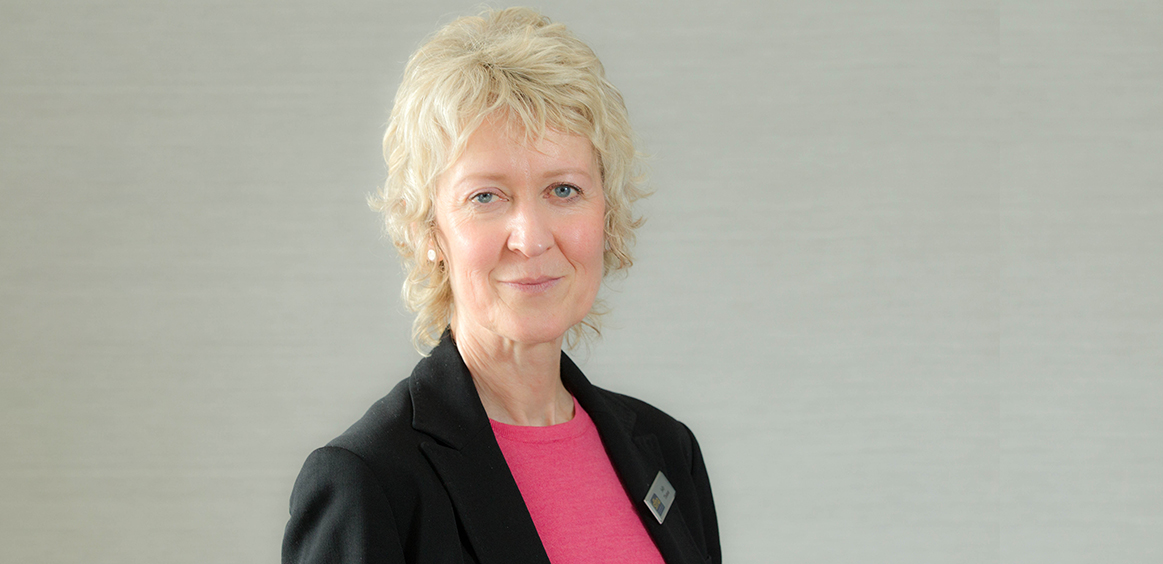Scottish Government urged to accept Social Renewal Advisory Board recommendations
The Scottish Federation of Housing Associations (SFHA) has welcomed the report by the Social Renewal Advisory Board, which has made recommendations for a fairer and more equal Scotland as the country prepares for its post-pandemic recovery.

Sally Thomas
The SFHA has called on the Scottish Government to accept the report’s 20 calls to action which aim to transform Scotland, building on the country’s firm foundations of social justice, by continuing to tackle poverty and inequality; ensuring basic rights are realised; and working towards fairer, healthier and empowered communities.
The calls include ensuring that everyone in Scotland has a basic level of income from employment and social security; incorporating the right to an adequate and accessible home into Scots law; making sure there are enough safe, warm, accessible and affordable homes, in places people want to live; and building on successful ways of working in communities that were introduced during the pandemic.
SFHA chief executive Sally Thomas was joint chair of the editorial sub-group for the report.
She said: “This is a pivotal report for Scotland, and SFHA welcomed the opportunity to contribute to it. We are calling on the Scottish Government to accept the report’s calls to action as they have the power to transform Scotland.
“The coronavirus pandemic has brought unprecedented challenges, but it has also re-energised work to tackle the inequalities that persist and stand in the way of Scotland becoming the inclusive, fair and progressive country we all want.
“During the pandemic, we have witnessed remarkable new partnerships being formed across communities, with volunteers, national and local government, businesses and third sector organisations coming together to support those most affected, and we must build on this work as we plan for Scotland’s recovery.
“Covid-19 has also shown just how vital it is that everyone in Scotland has access to a safe, warm, affordable home, and the government can realise this by committing to the 53,000 affordable homes that we know Scotland requires during the next parliament.”
Citizens Advice Scotland (CAS) has also welcomed yesterday’s report and has urged the Scottish Government to work towards some of its key recommendations.
CAS led the case for a dignity and rights-based approach to personal debt focused around the needs of the individual, including write-off schemes, to the group.
The charity also voiced support for recommendations from the group around fair work, the right to housing, redefining what services are essential to our communities, and setting a target to end digital exclusion in the next parliamentary term.
CAS chief executive Derek Mitchell said: “The public health crisis of Covid 19 is also the most significant economic crisis of our lifetime, so this report is an essential contribution to the debate around how we move forward.
“The pandemic has certainly made things worse for many people, but the Citizens Advice network in Scotland saw huge problems with personal debt and peoples’ ability to deal with squeezed incomes and soaring living costs before Covid-19. Going back to normal simply won’t be good enough after this – we need real action on incomes.
“That’s why we’re pleased to see some of our key recommendations in the report, particularly around personal debt. Write-off schemes for people who have built up unsustainable levels of debt would be the right thing to do. There’s no social or economic sense in chasing people for money they simply will never be able to pay back.
“Last year the Citizens Advice network in Scotland unlocked over £170 million for people. We have supported people throughout the Coronavirus crisis and we’ll be here to do so afterwards, but policies focused on reducing poverty and improving people’s financial wellbeing in Scotland would make a huge difference.”
The Social Renewal Advisory Board report’s Calls To Action include:
Money and Work
1. Commit to a Minimum Income Guarantee for all as a long-term aim.
2. Develop an approach to anti-poverty work, including personal debt, that is designed around the needs of the individual.
3. Work in partnership to develop a new social contract on Fair Work.
4. Focus Fair Work actions on those most affected by the pandemic.
5. Extend free early learning, childcare and social care so all parents and carers can access the childcare they need, when they need it.
People, Rights and Advancing Equality
6. Incorporate the right to an adequate and accessible home in Scots Law.
7. Make sure there are enough homes that are safe, warm, accessible, affordable, and in places people want to live.
8. Ensure everyone can access nutritious, culturally appropriate and affordable food.
9. Set a target to end digital exclusion in the next parliamentary term.
10. Adopt the principles of Universal Basic Services.
11. Incorporate key international human rights instruments into Scots Law so as to deliver real change.
12. Take action to realise the human rights of disabled people.
13. Build inclusive communication into all national and local government funding requirements.
14. Strengthen approaches to prevent and address hate crime and public sexual harassment.
15. Apply the rights and entitlements in this report to all migrants.
Communities and collective endeavour
16. Further shift the balance of power so individuals and communities have more control over decisions that affect their lives.
17. Improve service delivery and design by empowering frontline teams and the people and communities they serve.
18. Build on new ways of working, based on what has worked well during the pandemic, and develop new arrangements for local governance.
19. Focus everyone and all activities on building more resilient, fairer, healthier and stronger communities and places.
Closing The Gap Between Promise and Practice
20. Co-design how we assess progress towards renewal, incorporating deeper engagement with those people and communities who have first-hand experience of poverty, inequality and restricted life chances.








